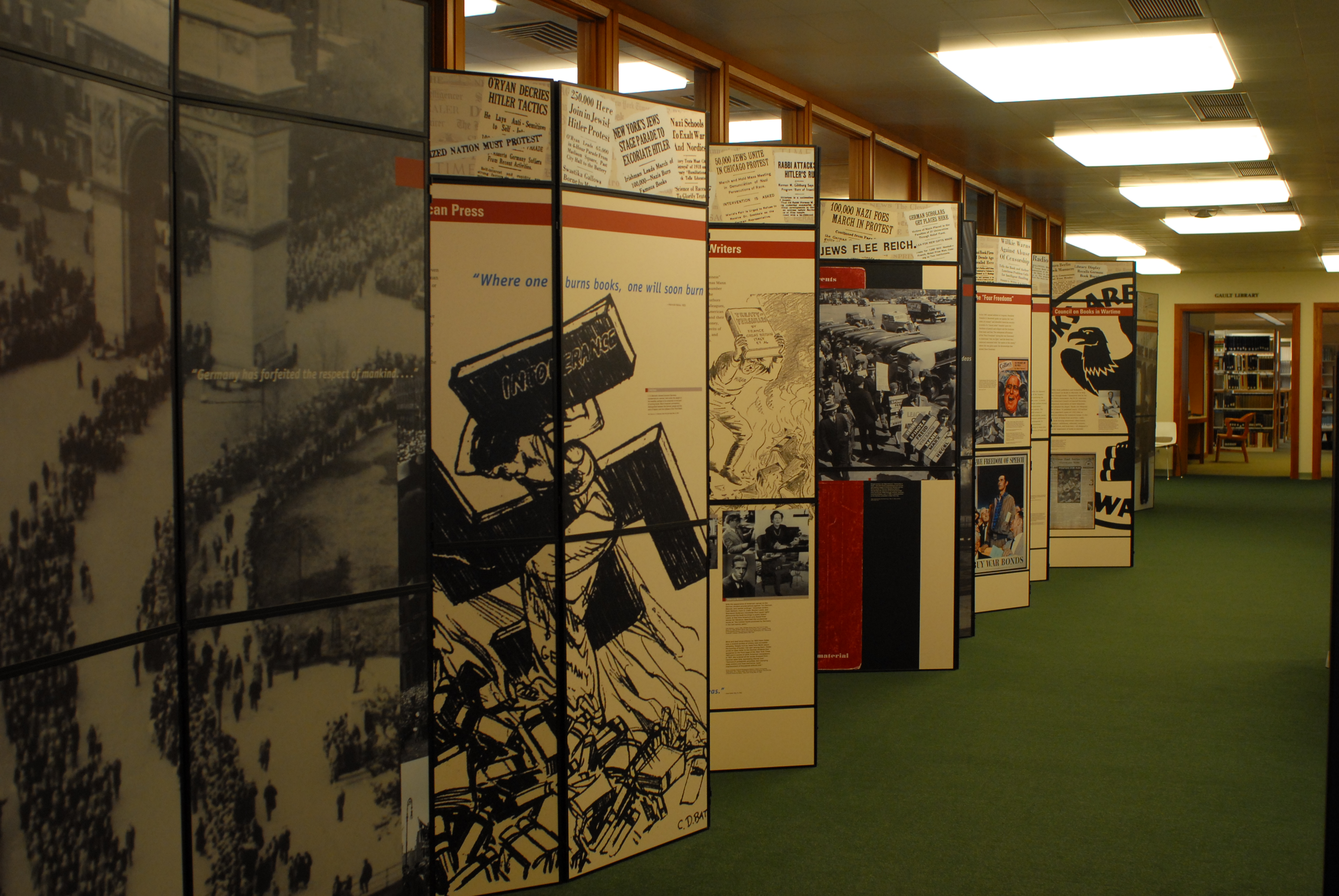Bass speaks at “Fighting the Fires of Hate: America and the Nazi Book Burnings”
Libba Smith
A&E Editor
The exhibit “Fighting the Fires of Hate:
America and the Nazi Book Burnings,” a traveling display from the United States Holocaust Memorial Museum, officially opened on Sept. 22 with its keynote speaker, Dr. Leon Bass. Bass initially seemed to be a soft-spoken man, but he soon showed his prowess as a captivating, dynamic speaker. His passion for the subject built throughout his speech as he described his experiences as an American soldier in World War II and his encounters with racism within the U.S.

Bass opened his speech by crediting his parents and several of his teachers, calling them the “giants” he has leaned on throughout his life. He said that he was speaking to and for them.
Despite his parents’ misgivings, Bassnrolled in the army at age 18, where he got his first taste of institutionalized racism by being separated from the white recruits. His battalion was first sent throughout the South, where they struggled with the ignorant racism of Southern society. They were next shipped to England and then to France, where they built the bridge during the Battle of the Bulge that allowed for the rescue of the 101st Airborne.
The soldiers then went into Germany, where they participated in the liberation of Buchenwald, which was a truly harrowing experience. Bass saw what he called the “walking dead,” people who seemed only
made of skin and bones with skeletal faces, sunken eyes and sores from malnutrition. He saw jars of body parts and a lampshade made of human skin from Nazi medical experiments, a torture building with blackened blood on the floors and instruments on the walls, heaps of children’s clothing despite never seeing a single child, and piles of bodies outside the crematorium. Even years after returning home, Basscould “never forget” the atrocities he witnessed at Buchenwald.
The recurring theme of the speech was Bass’s lifelong struggle with society telling him, “Leon, you’re not good enough.” He heard this sentiment implied in the segregation of the army, in being turned away from restaurants and water fountains and being forced to stand in the back of a bus for a 100-mile ride when there were seats available in the section reserved for whites. Bass described himself in his youth as an “angry black soldier,” thirsting for retribution for the wrongs committed against him.
However, the experience of seeing the sheer depravity of Buchenwald awakened new passions in Bass. He realized that “human suffering is not relegated to me; pain and suffering can touch all of us.” He vowed to do something about hate and suffering in his own country. He returned to the U.S. to get an education, becoming a teacher and later a principal. Bass has worked in both white and black schools, including some of the worst in the country.
Bass urged his audience to “love the unlovable.” Even after experiencing the worst side of humanity, Bass remains committed to his cause; he wisely stated that, “we can’t solve our problems with violence, we must solve them with love.”


